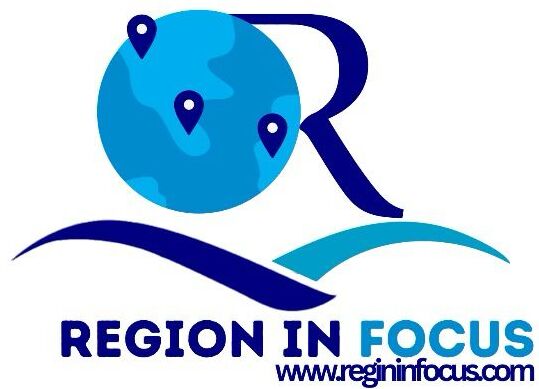The Covid 19 pandemic phenomenon has been among the most transformative happenings in the world in the modern history as it highlighted the weaknesses of the public health systems and governance systems around the globe. What started as a localized outbreak, soon turned into a worldwide crisis that changed the economies, societies, and international relations. With the world still in recovery, the COVID-19 has raised the critical reflection on the condition of global health security the overall ability of countries to prevent, detect, and respond to health threats. The pandemic was not just a wake-up call but a public health crisis, making governments and institutions rethink the way global health preparedness should be organized in the 21 st century.
The Global Health System Shock.
Prior to the outbreak of COVID-19, the globe assumed that it was fairly prepared to handle a pandemic. Such frameworks as International Health Regulations (IHR 2005) and Global Health Security Agenda (GHSA) were developed in order to facilitate the improved surveillance of diseases and collaboration between states. Nevertheless, this was not true when the COVID-19 hit and even developed health systems were taken by surprise. The rapidity of the spread, combined with lack of sufficient depository bases of medical supplies, overwhelmed hospitals and uncovered weak health infrastructure.
The first months of the crisis have shown the weaknesses in communication, coordination, and the political will. Most countries reacted through insular policies and national interests were taken into consideration at the expense of international unity. The interruptions of the supply chains resulted in the lack of needed medical equipment, and the vaccine nationalism destroyed the fair distribution of life-saving measures. These problems showed that the global health security cannot be based on the national preparedness only; rather, it should be based on the trust, transparency, and cooperation across the boundaries.
Preparedness to Healthcare in the wake of a pandemic and the use of surveillance.
Among the most notable COVID-19 lessons is the importance of having strong systems of public health surveillance. The principles of health security involve early detection and quick response. Nonetheless, the difficulty to detect the outbreak early enough and the disparity in the quality of the information that was shared between countries demonstrated critical flaws. Underinvestment in the infrastructure and epidemiological capacity (in terms of the laboratory infrastructure) hampered prompt diagnosis and containment responses in other regions.
In the post-pandemic period, the global community is putting an emphasis on the enhancement of surveillance networks incorporating human, animal and environmental health or the so-called One Health approach. This model recognizes the fact that diseases tend to develop at the junction of human and ecological systems, and thus, health security should be an interdisciplinary concept. Improved genomic sequencing instruments and real-time data-sharing digital tools are currently taking center stage in the same. However, technology does not guarantee safety and clear governance and political responsibility is also a requirement.
The Politics of Multilateralism and the boundary of International Cooperation.
The pandemic highlighted the usefulness and the shortcomings of multilateral cooperation. The role of such organizations as the World Health Organization (WHO) was to be indispensable at organizing the information, giving guidelines, and aiding low-income countries. Nevertheless, the effectiveness of the organization was restrained by political influences, uneven funding and unequal compliance in different countries. Most nations had done things independently and there are instances where they have ignored the recommendation of the WHO to their own benefit at the expense of the domestic political agendas.
The challenges have once again brought issues of global health governance reform back to the table. Suggestions to a new international treaty on pandemics have been on the rise, with the intention of countries committing themselves to share data, resources and technologies in case of future emergencies. The idea of health care as a right of everyone, which has been the policy of the whole world since decades, has attained a new urgency. Enhancing the nature of world institutions and equal involvement of developing countries in decision making processes are important milestones in achieving more inclusive and strong health governance.
Access and the Ethics of Vaccination.
The creation of vaccines against COVID-19 in one year was a great scientific feat. But, this was marred by winking inequalities in dispersion. The richer countries obtained large amounts of doses in advance purchase contracts and many countries with low incomes were unable to vaccinate even the most endangered groups. The programs, such as COVAX, aimed at ensuring equitable access, were logistically and financially difficult, and it demonstrates the continuation of structural inequalities in global health systems.
The implications of vaccine inequity extend beyond the crisis. It destroys confidence in international institutions, creates geopolitical tensions, and increases recovery time on a global scale. The moral of the story is that health security cannot be pursued on its own. Pandemics have no boundaries and no one is safe until all are safe. Going forward, the international community needs to put measures in place to achieve fair access to medical innovations not out of a sense of charity but of collective action and as an ethical obligation.
Sustaining Health Systems and Workforce Resilience.
COVID-19 revealed years of chronic underinvestment in health infrastructure and workforce resilience, even in the high-income countries. There were intensive care capacity and personal protective equipment shortages, as well as shortages of trained personnel, in hospitals. The pandemic has caused the redirection of already scarce resources in developing countries of the essential health sector, which worsens existing disparities in maternal care, vaccination, and disease prevention.
The post-pandemic agenda should thus be on re-establishing health systems with special attention to resilience, flexibility and inclusiveness. Primarily, the investments should focus on primary healthcare, communal health care, and mental health care of patients and health professionals. In the same breath, there is the need to provide fair payments, safety, and appreciation of the health workers who are the primary support of any response effort. The pandemic experienced that robust health systems do not only exist in the infrastructure, but also rely on human capacity, compassion, and trust among institutions.
The contribution of Science, Misinformation, and Trusts of the people.
The other characteristic of the COVID-19 era was the so-called infodemic i.e. a wave of misinformation that was spreading at an equally high pace as the virus itself. The fake news concerning vaccines, cures, and the sources of the virus decreased trust in science and organizations among people. The politicization of the actions of public health, including masking, vaccination efforts, revealed the underlying social divisions of society and the weakness of belief in science.
The establishment of global health security cannot be done through technological innovation only but it needs to begin with restoration of trust in science and governance. Open communication, involvement and participation in the community and decision making are vital. Scientific community should not only produce evidence but make it effective and empathetic. Social cohesion can be enhanced by empowering local leaders, teachers, and media platforms to fight misinformation, which will lead to better adherence to social health regulations in new outbreaks.
Economic and Social Aspect of Health Security.
The Covid-19 showed that economics and health are two inseparable aspects. Lockdowns, travel, and business shutdowns had generated the worst recession in the world in recent decades. Millions of people were left without a livelihood and inequalities increased cross-country and between countries. The most vulnerable groups to the economic turmoil were informal workers, women and the marginalized groups, which shows the impact of health crisis on pre-existing social vulnerabilities.
Health and economic policy should be combined in post-COVID recovery activity. To create resilient societies, it is necessary to invest into healthcare, as well as in social protection systems, education, and inclusive growth. There is need to have a more holistic conception of health security – the one that includes social justice, gender equality and sustainable development which will ensure that future crises do not further divide the world.
Conclusion: Towards a Healthy and Strong International Health System.
The COVID-19 pandemic has changed the definition of global health security. It revealed the vulnerabilities of the system, yet it also gave a very distinctive chance at change. The lessons studied, that is, regarding preparation, cooperation, equity, and trust should be used in the course of future action. Enhanced surveillance, health system investment, global governance reform, and equitable access to medical facilities are not such options, but the building blocks of a safer world.
Finally, global health security has a future that lies in the solidarity and shared responsibility. The pandemic has revealed that the health system of a single country can put the life of the entire world at risk in an interconnected world. The interdependence that is expected to be adopted as the key to building a resilient and just global health order following COVID is not a sign of weakness of humanity but its greatest asset.


